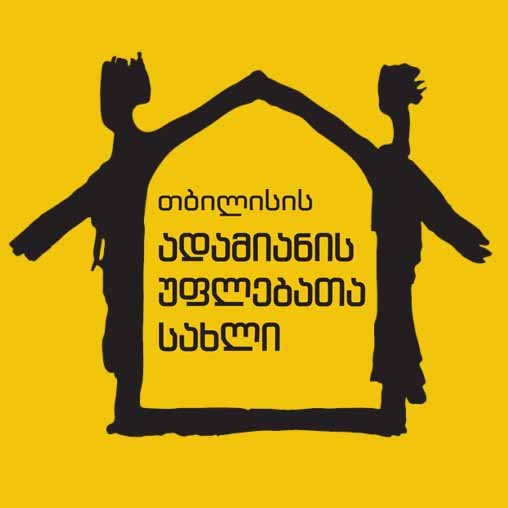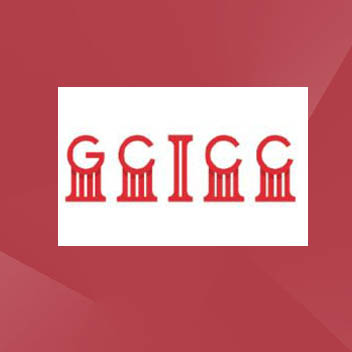News
Statement of Human Rights Center regarding the Judgement of Conviction against Nika Gvaramia
16.05.2022
Font size
Today, on May 16, 2022, Tbilisi City Court rendered a judgment of conviction against Nika Gvaramia and some persons connected with him. Judge Lasha Chkhikvadze found Nika Gvaramia guilty of the offense under Article 220 of the Criminal Code of Georgia presupposing an abuse of power and sentenced Gvaramia to 3 years and 6 months of imprisonment.
According to the assessments by HRC, the initiation of the criminal prosecution and today’s judgment of conviction by Tbilisi City Court against Nika Gvaramia, the Director-General of the critical media outlet, is politically motivated and serves the means to punish him.
In 2021, HRC prepared an analytical document - "Legal Assessment of the ongoing Criminal Case against Nika Gvaramia". The aim of the document is to evaluate the extent of the sufficiency of the arguments employed by the prosecution to bring to justice the Director-General of Mtavari Arkhi TV Company Nika Gvaramia being accused of unlawful misappropriation of property rights committed in aggravating circumstances.
The document analyzes whether the decisions taken by Nika Gvaramia as the former director of TV company Rustavi 2 contained the elements of the offense as provided by the Criminal Code. Further, whether the subsumption of the offense corresponds to the national and international standards and experience; and, whether there are alleged political motives and signs of selective justice in this case.
The study rests on various documents available in the case files, reports of the court proceedings prepared by the court monitor of HRC, and identified problematic issues of the substantive criminal law and the procedural criminal law. The study presents a comparative legal analysis by comparing national laws and judicial decisions with the judgments of US and German courts, various international standards stemming from the corporate law disputes, as well as relevant judgments of the ECtHR, revealing in more clear terms various legal problems in the case. In particular:
● The case does not follow the principles of legal certainty and safeguards against arbitrariness which are considered to be a common threat to the Convention and the rule of law;
● In taking the decision of assuming the impugned acts of Nika Gvaramia as criminal, it is still unknown whether the Office of the Prosecutor General of Georgia has given reasonable consideration to the decisive facts available in the criminal case initiated against the accused. The above aspects could serve as a turning point in determining the impugned actions not to be a criminal offense and declaring the innocence of the accused;
● The scope of abuse of power in the criminal case is completely unclear being arbitrarily interpreted by the prosecution authorities to the detriment of the defendant;
● The case files do not show whether the prosecution has considered the use of alternative legal means of prosecution;
● Further, the prosecution did not pay attention to the fact that the decisions of the director were agreed upon and approved by the partners, and shareholders, and the director reasonably believed that following the analysis of short or long term risks, the decisions served the best interests of the corporation as agreed with partners and shareholders.
In delivering the judgment, the court must have taken into account the substance of the allegations, the time and space of making the allegations, the actions taken by various authorities (including arbitrary interpretation of the criminal law), and other facts which unequivocally indicate the possible application of selective justice against persons with different political views. During the court hearing, the judge failed to pay attention to the above issues. Unfortunately, Tbilisi City Court did not attach due importance to the decisive facts available in the criminal case processed against the defendant. These aspects could have marked a turning point in determining the innocence of the accused.
According to the assessments by HRC, the initiation of the criminal prosecution and today’s judgment of conviction by Tbilisi City Court against Nika Gvaramia, the Director-General of the critical media outlet, is politically motivated and serves the means to punish him.
In 2021, HRC prepared an analytical document - "Legal Assessment of the ongoing Criminal Case against Nika Gvaramia". The aim of the document is to evaluate the extent of the sufficiency of the arguments employed by the prosecution to bring to justice the Director-General of Mtavari Arkhi TV Company Nika Gvaramia being accused of unlawful misappropriation of property rights committed in aggravating circumstances.
The document analyzes whether the decisions taken by Nika Gvaramia as the former director of TV company Rustavi 2 contained the elements of the offense as provided by the Criminal Code. Further, whether the subsumption of the offense corresponds to the national and international standards and experience; and, whether there are alleged political motives and signs of selective justice in this case.
The study rests on various documents available in the case files, reports of the court proceedings prepared by the court monitor of HRC, and identified problematic issues of the substantive criminal law and the procedural criminal law. The study presents a comparative legal analysis by comparing national laws and judicial decisions with the judgments of US and German courts, various international standards stemming from the corporate law disputes, as well as relevant judgments of the ECtHR, revealing in more clear terms various legal problems in the case. In particular:
● The case does not follow the principles of legal certainty and safeguards against arbitrariness which are considered to be a common threat to the Convention and the rule of law;
● In taking the decision of assuming the impugned acts of Nika Gvaramia as criminal, it is still unknown whether the Office of the Prosecutor General of Georgia has given reasonable consideration to the decisive facts available in the criminal case initiated against the accused. The above aspects could serve as a turning point in determining the impugned actions not to be a criminal offense and declaring the innocence of the accused;
● The scope of abuse of power in the criminal case is completely unclear being arbitrarily interpreted by the prosecution authorities to the detriment of the defendant;
● The case files do not show whether the prosecution has considered the use of alternative legal means of prosecution;
● Further, the prosecution did not pay attention to the fact that the decisions of the director were agreed upon and approved by the partners, and shareholders, and the director reasonably believed that following the analysis of short or long term risks, the decisions served the best interests of the corporation as agreed with partners and shareholders.
In delivering the judgment, the court must have taken into account the substance of the allegations, the time and space of making the allegations, the actions taken by various authorities (including arbitrary interpretation of the criminal law), and other facts which unequivocally indicate the possible application of selective justice against persons with different political views. During the court hearing, the judge failed to pay attention to the above issues. Unfortunately, Tbilisi City Court did not attach due importance to the decisive facts available in the criminal case processed against the defendant. These aspects could have marked a turning point in determining the innocence of the accused.
News
17.04.2024




